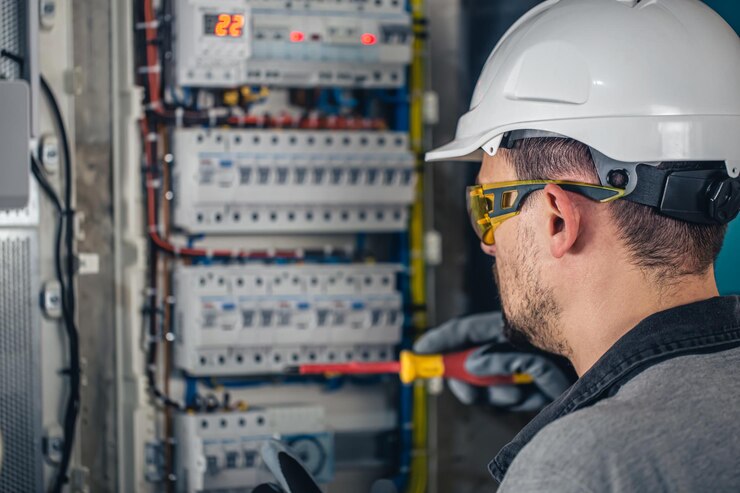Digitalization has revolutionized many industries, and the field of power panel monitoring and control systems is no exception. This transformation has enhanced efficiency, reliability, and safety, driving significant improvements in these systems and changing how they operate.
Enhanced Monitoring Capabilities
Power panel monitoring has become more sophisticated with digital advancements. Real-time digital monitoring has replaced traditional manual checks and periodic inspections. This shift allows for continuous surveillance of electrical systems, enabling immediate detection of anomalies such as overloads, faults, or irregular power usage. Digital sensors and smart meters integrated into power panels provide detailed insights, helping to prevent potential issues before they become critical.
Improved Control and Automation
One of the most significant benefits of digitalization in power panel systems is the possible automation of control processes. Automation reduces human error, enhances precision, and increases operational efficiency.
Digital lighting control panels can automatically adjust lighting levels based on occupancy or time of day, optimizing energy consumption and reducing costs. These automated systems can be remotely controlled and configured through user-friendly interfaces, allowing facility managers to make necessary adjustments without being physically present.
Increased Energy Efficiency
Digital technologies have made it possible to optimize energy use in ways that were previously unattainable. Power panels equipped with advanced monitoring tools can track energy consumption patterns. They also help identify areas where energy is being wasted, and help curb the same. By analyzing this data, facility managers can implement targeted measures to reduce unnecessary energy use. For instance, digital lighting control panels can ensure that lights are only on when needed, significantly lowering energy consumption in commercial buildings and industrial facilities.
Enhanced Safety and Reliability
Safety is paramount in any electrical system. Digitalization has brought about significant improvements in this area. Real-time monitoring and advanced diagnostics provided by digital power panels enhance the ability to detect and respond to electrical faults quickly. This rapid response capability minimizes the risk of electrical fires, equipment damage, and power outages. Additionally, automated control systems can ensure that emergency protocols are activated instantly during critical situations, enhancing safety further.
Remote Access and Management
The ability to remotely monitor and manage power panels is a major advantage of digitizing. Facility managers can access real-time data and control systems from anywhere, using smartphones, tablets, or computers. This capability is widely sought while operating large facilities with multiple buildings or remote sites. Remote access reduces the need for on-site visits, saving time and resources while ensuring that systems are always under supervision.
Integration with Other Systems
Digital power panel systems can seamlessly integrate with other building management systems (BMS), creating a cohesive and coordinated approach to facility management. This integration enables centralized control of various systems, including HVAC, security, and lighting control panels. Such a unified system enhances overall operational efficiency, providing a holistic view of the building’s performance and enabling comprehensive energy management strategies.
Data Analytics and Predictive Maintenance
Digital power panels generate vast amounts of data that can be analyzed to improve system performance. Advanced analytics tools can process this data to identify trends, predict potential issues, and recommend maintenance actions. Predictive maintenance, enabled by data analytics, helps in planning and scheduling maintenance activities to avoid escalations, reducing downtime and extending the lifespan of equipment.
Conclusion
Digitalization has profoundly impacted the monitoring and control of power panels, bringing about numerous benefits including enhanced monitoring, improved control, increased energy efficiency, and enhanced safety. The integration of lighting control panels and other systems, along with the ability to perform predictive maintenance through data analytics, underscores the importance of embracing digital technologies in modern facility management. As digitalization continues to advance, the capabilities and benefits of digital power panel systems are expected to grow, further transforming the landscape of electrical management.
